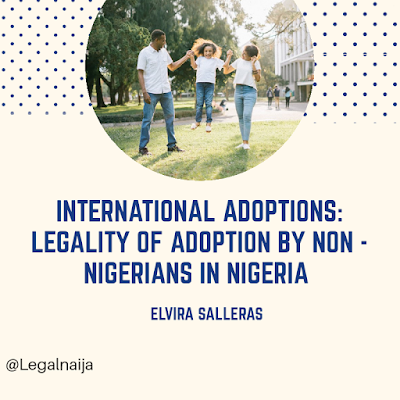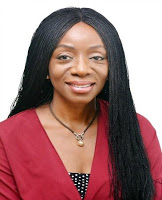
Over the last few years, I have received several enquiries from non-Nigerians living abroad, wishing to be advised on the correctness of the statement published by the US embassy in Nigeria on its official website: “Individuals who are not Nigerian citizens are not legally allowed to adopt in Nigeria. When a married couple is adopting, both must be Nigerian citizens. Only U.S. citizens who also have Nigerian citizenship are allowed to adopt children in Nigeria. Nigerian adoption laws are complex and vary from state to state.”
By this statement, the US embassy is asserting that all non-Nigerians who adopt Nigerian children are doing so illegally. This article seeks to throw more light on the subject and set the records straight. For clarity, I have numbered each sentence comprised in the statement and will address them sequentially:
1. Individuals who are not Nigerian citizens are not legally allowed to adopt in Nigeria.
2. When a married couple is adopting, both must be Nigerian citizens.
3. Only U.S. citizens who also have Nigerian citizenship are allowed to adopt children in Nigeria.
4. Nigerian adoption laws are complex and vary from state to state.
Sentences nos.1 and 2 are sweeping, categorical assertions, which when read together with Sentence no.4, suggest that the US Embassy had read and analyzed the relevant laws of each of the thirty-six Nigerian states plus that of the Federal Capital Territory, before concluding that they all prohibit adoption by non-Nigerians. Interestingly, such a position seems to be contradicted by the same Sentence no.4, which states that Nigerian adoption laws vary from state to state.
In practice, while the adoption laws or policies of some states such as Rivers and Enugu as well as the Federal Capital territory expressly prohibit adoption by non-Nigerians, others including Cross River and Lagos, provide exceptions for adoption by non-Nigerians. Indeed, when the Lagos state government amended its Child’s Rights Law (CRL) in 2015, it completely removed the mention of “non-Nigerian” from the section relating to restrictions on the making of adoption orders. This was done to eliminate the pre-existing ambiguity on adoption by non-Nigerians (see Section 121, CRL). Furthermore, in Section 133, CRL which provides for the “licence to give child for Inter-state adoption”, the best interest of the child is the paramount consideration (Section 133 (3)) and no mention of the adopter’s nationality is made.
Hence such sweeping generalizations as reflected in Sentences no.1 and 2 above, at best constitute a subjective opinion calculated to serve the purposes of the US government. Indeed, the US government is at liberty to prohibit its citizens who are non-Nigerians from adopting Nigerian children in line with its immigration policies. But in seeking to justify this stance by leveraging on a subjective interpretation of all the adoption laws in Nigeria, the US government could be unwittingly pushing the limits of fact.
Sentence no.3: Such a position is obviously a matter of US government policy which is therefore valid for their purposes and consequently outside the scope of this article.
Sentence no.4: The statement, “Nigerian Adoption laws are complex”, without supporting evidence or explanation is at best, a simplistic expression of opinion or judgment.
In light of the above, I am of the opinion that the publication in issue, in so far as it tars all adoptions by non-Nigerians with the same brush of illegality and complexity, is hasty, ill-informed and likely to mislead the public. Therefore, it should be modified to reflect the reality of international adoptions in Nigeria.

Elvira Salleras, BL, LLM, ACTI
Elvira was called to the Nigerian bar in 1989 and is an expert in inter-country adoptions and cross-border transactions. She is the Managing Partner of Elvira Salleras + Associates, a multi-disciplinary legal practice based in Lagos and founder of Literacy, Integration and Formal E
ducation Foundation, a child-focused NGO.
